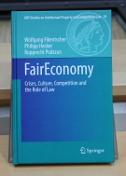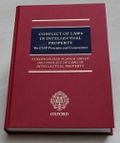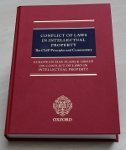Dr. Frank Mueller-Langer comes out on top in a competitive process of research funding: The Senior Research Fellow at the Munich Center for Innovation and Entrepreneurship Research (MCIER, Team Prof. Dietmar Harhoff, Ph.D.) of the Max Planck Institute for Intellectual Property and Competition Law (MPI) and Academic Coordinator of the International Max Planck Research School for Competition and Innovation (IMPRS-CI) receives a "Sloan Economics of Knowledge Contribution and Distribution Grant 2013". The award endowed with $11,000 goes to Dr. Mueller-Langer and Professor Richard Watt of the Department of Economics and Finance at the University of Canterbury in Christchurch, New Zealand, for their joint work entitled "The Hybrid Open Access Citation Advantage: How Many More Cites is a $3,000 Fee Buying You?".
In their research project, Mueller-Langer and Watt examine the effects that the hybrid open-access format, or HOA, introduced in recent years by publishers like Springer and the Oxford University Press in their academic journals has on articles' citation rates. The HOA format allows authors to publish their articles not only in the print journal but also, for a one-time fee of $3,000, in openly accessible electronic form. For Mueller-Langer and Watt, the support for this ongoing project not only means winning the prize competition of the Sloan Foundation, but is also a mark of distinction for their previous research on topics of open access. Further articles on the topic can be accessed under Mueller-Langer's author's page at SSRN.
The main project "The Economics of Knowledge Contribution and Distribution", which provides the thematic framework for Mueller-Langer and Watt's research project, is based at the Rotman School of Management and led by Professor Joshua Gans (University of Toronto) and Professor Fiona Murray (MIT Sloan). The aim of the project is an enhanced understanding of the economic factors of growth and the dissemination of knowledge. The Sloan Foundation currently provides funding for this project in the total amount of approximately $300,000 per year.
Dr. Frank Mueller-Langer has degrees in economics and business administration. He joined the MPI, where he is a Senior Research Fellow, in October 2008. He is currently working on issues of open access to academic publications and data.
The Alfred P. Sloan Foundation was founded in 1934 by Alfred P. Sloan, Jr., then President and Chief Executive Officer of General Motors. It is a non-profit organization for the advancement of science based in New York City. The foundation lists its total assets at approximately 1.8 billion US dollar.



![XIVth [IP]² Seminar: Dr. Bertram Huber (IP*SEVA), April 2013 XIVth [IP]² Seminar: Dr. Bertram Huber (IP*SEVA), April 2013](/fileadmin/_processed_/e/2/csm_ip_2_huber_02_eb8a9bbb55.jpg)
![XIVth [IP]² Seminar: Dr. Bertram Huber (IP*SEVA), April 2013 XIVth [IP]² Seminar: Dr. Bertram Huber (IP*SEVA), April 2013](/fileadmin/_processed_/e/2/csm_ip_2_huber_02_fed999b7c1.jpg)









